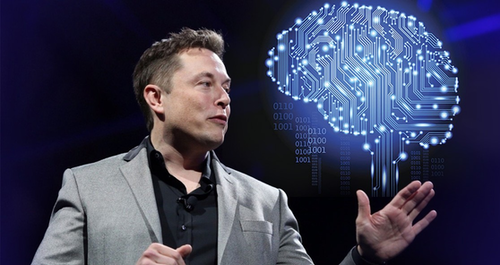01:32:39 am 07/30/2023
Viewed: 4995
Title: Elon Musk's Technological Empire: Aiming for Progress, Not Control
Elon Musk, the entrepreneurial powerhouse behind a multitude of innovative companies, has been a driving force in technological advancement for over two decades. His ventures, including SpaceX, Tesla, Neuralink, The Boring Company, and most recently, Twitter, have made significant strides in their respective industries. However, the question arises: Is Musk's ultimate goal to use technology to control humans?
Deciphering Musk's Vision
To address this question, it's crucial to delve into Musk's overarching vision. He has consistently stated that his primary objective is to ensure the survival and progress of humanity. His initiatives, from promoting sustainable energy (Tesla) to making life multi-planetary (SpaceX), are aimed at solving some of the most significant challenges facing our species.
Neuralink: Healing and Enhancing the Human Brain
Neuralink, Musk's venture into developing high-bandwidth brain-computer interfaces, might raise the most concerns about potential human control. Theoretically, the technology could be used to influence human behavior or thought. However, Musk has emphasized that Neuralink's primary goal is to address neurological disorders and injuries and to enhance human cognition to keep pace with AI. While the potential for misuse exists with any powerful technology, there's no clear evidence to suggest that Musk's intention is to control humans.
Starlink: Bridging the Digital Divide
Starlink, Musk's project to provide global broadband internet coverage via a constellation of satellites, could theoretically be used for surveillance or controlling information access. However, Musk has positioned Starlink as a means to bring internet access to underserved areas of the world, promoting global connectivity and economic opportunity.
Tesla and The Boring Company: Pioneering Sustainable Solutions
Tesla's mission to combat climate change through electric vehicles and renewable energy products aligns more with global progress than individual control. Similarly, The Boring Company aims to solve traffic congestion in major cities through an innovative network of underground tunnels, focusing on improving urban infrastructure rather than controlling humans.
Twitter: A New Chapter
As of October 2022, Musk added Twitter to his portfolio, acquiring the social media giant for $44 billion. While it's still early to determine his exact plans for the platform, it's likely that Musk will aim to promote free speech, open discourse, and potentially explore new technological integrations or improvements.
In Conclusion
While Elon Musk's ventures are undeniably influential and have the potential to shape human society in profound ways, it's a leap to suggest that his goal is to control humans. His stated objectives align more with addressing major global challenges and advancing human progress. As we continue to witness the evolution of Musk's technological empire, it's crucial to have robust ethical guidelines, transparency, and regulatory oversight in place to prevent potential misuse and ensure the benefits of these technologies are widely shared.
Elon Musk, the entrepreneurial powerhouse behind a multitude of innovative companies, has been a driving force in technological advancement for over two decades. His ventures, including SpaceX, Tesla, Neuralink, The Boring Company, and most recently, Twitter, have made significant strides in their respective industries. However, the question arises: Is Musk's ultimate goal to use technology to control humans?
Deciphering Musk's Vision
To address this question, it's crucial to delve into Musk's overarching vision. He has consistently stated that his primary objective is to ensure the survival and progress of humanity. His initiatives, from promoting sustainable energy (Tesla) to making life multi-planetary (SpaceX), are aimed at solving some of the most significant challenges facing our species.
Neuralink: Healing and Enhancing the Human Brain
Neuralink, Musk's venture into developing high-bandwidth brain-computer interfaces, might raise the most concerns about potential human control. Theoretically, the technology could be used to influence human behavior or thought. However, Musk has emphasized that Neuralink's primary goal is to address neurological disorders and injuries and to enhance human cognition to keep pace with AI. While the potential for misuse exists with any powerful technology, there's no clear evidence to suggest that Musk's intention is to control humans.
Starlink: Bridging the Digital Divide
Starlink, Musk's project to provide global broadband internet coverage via a constellation of satellites, could theoretically be used for surveillance or controlling information access. However, Musk has positioned Starlink as a means to bring internet access to underserved areas of the world, promoting global connectivity and economic opportunity.
Tesla and The Boring Company: Pioneering Sustainable Solutions
Tesla's mission to combat climate change through electric vehicles and renewable energy products aligns more with global progress than individual control. Similarly, The Boring Company aims to solve traffic congestion in major cities through an innovative network of underground tunnels, focusing on improving urban infrastructure rather than controlling humans.
Twitter: A New Chapter
As of October 2022, Musk added Twitter to his portfolio, acquiring the social media giant for $44 billion. While it's still early to determine his exact plans for the platform, it's likely that Musk will aim to promote free speech, open discourse, and potentially explore new technological integrations or improvements.
In Conclusion
While Elon Musk's ventures are undeniably influential and have the potential to shape human society in profound ways, it's a leap to suggest that his goal is to control humans. His stated objectives align more with addressing major global challenges and advancing human progress. As we continue to witness the evolution of Musk's technological empire, it's crucial to have robust ethical guidelines, transparency, and regulatory oversight in place to prevent potential misuse and ensure the benefits of these technologies are widely shared.
No video exists.





Comments